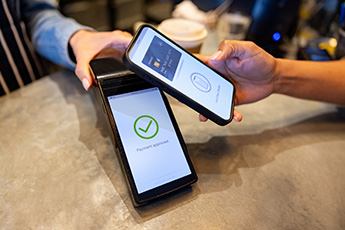If you are musically inclined, some people may say you have an "ear" for music. We find that particularly funny this morning, as it is also said that most toilets flush in E flat. So, the next time you musicians are using the facilities, be sure to check it out for yourself.
Before you tune us out today, consider that contrary to popular belief, many millennials actually care about their finances. As such, banks that can best help this customer group achieve their goals could win their business.
Individuals ages 23 to 37Ys old are actually just as good, or better, than baby boomers at managing money and setting financial targets, according to Bank of America's Winter 2018 Better Money Habits Millennial Report. In the survey, 54% of millennials are budgeting, which is pretty close to the 57% of baby boomers who also say that.
Meanwhile, 57% of millennials have a savings goal, compared to 42% of baby boomers. In addition, 63% of millennials are actually saving, although 75% of boomers are doing so.
Nevertheless, the survey shows that many millennials are actively getting their house in order: 73% who have a budget stick to it; 67% who have a savings goal stick to it; 47% have $15,000 or more in savings; and 16% have $100,000 or more in savings. Top priorities are saving for emergency funds (64%), retirement (49%) and buying a house (33%).
Despite all their planning and saving, many millennials are stressed about their finances. Some top stressors: not saving enough (35%); spending more than they should (17%); credit card debt (17%); student loans (17%); not having enough to invest (17%); not being able to afford a home (20%); and not planning and savings for retirement (21%).
Knowing that millennials want to save and may still be stressed gives community banks an opportunity to offer tools and tips to help these customers achieve their financial goals.
A community bank based in IN has a blog that helps educate millennials on budgeting. It details the different kinds of effective budgets, including zero-based budgeting. The bank notes, "You feel the freedom of getting to assign each dollar you get each month for a specific purpose rather than just trying to cut back on everything as much as possible". An educational blog may intrigue and help your younger prospects, which would see your bank as a source of financial information and be only a step away from customer conversion.
Another bank, though larger, offers expanded support with reminders and alerts. They tell customers when their checking account balance is below a certain amount, but they also send alerts when customers are close to reaching target spending amounts. The bank also enables customers to track specific savings goals and set notifications there as well.
A community bank based in MN offers budgeting tools on mobile apps so people can make better purchasing decisions on the spot. Still another bank in the Southeast uses videos to appeal to millennials and help them set concrete goals.
Needless to say, there are many ways to go about this. The good news is that millennials are saving and budgeting, so they should be receptive to financial tips, educational videos and/or other tools and advice. Try something out, and then assess whether it is working or needs tweaking. Doing so the right way will sound great to customers and show them your bank team is orchestrated to help them.




